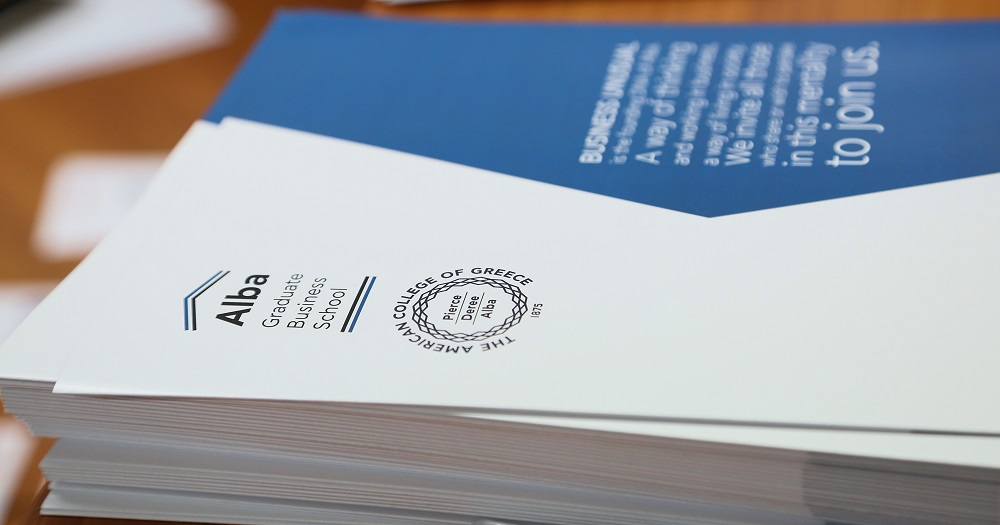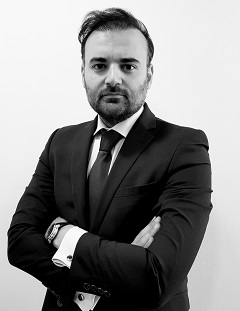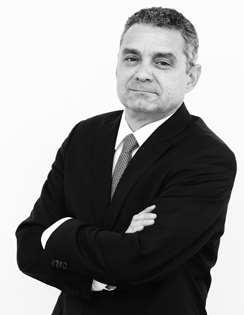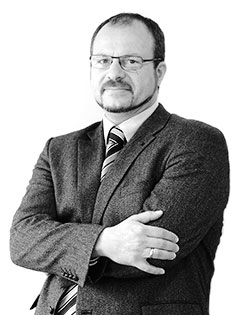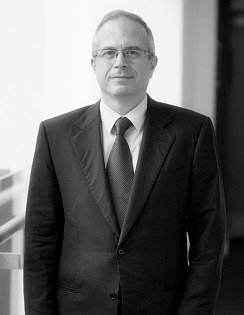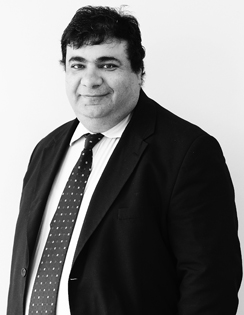MSc in Tourism Management
UPGRADE TO BUSINESS CLASSOVERVIEW
This program meets the growing needs of the tourism industry to shape high skilled and knowledgeable professionals, so that they can assume leading roles in the management of tourism organizations. The program blends the requisite specialist operational knowledge and skills, with advanced managerial competencies, in order to educate the new generation of tourism executives. It emphasizes the cross-cultural, moral, ethical, institutional and environmental issues in the management of tourism organizations, while covering all specialized business and operational skills. The strategic partnership with Costa Navarino and a series of events in collaboration with key tourism players throughout the program, as well as a well-organized internship process strongly support the development of a professional network and increase considerably the employability of students upon graduation.
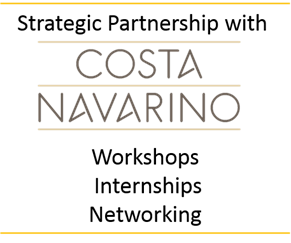
Why Tourism?
The tourism sector fuels growth and job creation around the world, at sustained pace, according to the World Tourism Organization:
- Represents approximately 9% of the global economy;
- Has created approximately 69 million new jobs in the past 10 years.
The Greek tourism industry is one of the most dynamic fields of employment in the country, according to SETE, the Association of Greek Tourism Enterprises:
- Represents 17.3% of the country’s GDP;
- Supports 18.3% of total domestic employment, directly employing nearly 700.000 people across all skill levels.
Key features of the program:
- Weekday synchronous, distance learning classes between 18:00 – 22:00, twice a week on average for part-time mode;
- A 12-month program (24-month program for part-time mode);
- 14 core modules and 5 workshops (3 of which face-to-face between November-March);
- Assessment: group reports/presentations, case study analysis, mid-term tests, final exams;
- Dissertation or Internship (in Greece or abroad).
The MSc in Tourism Management is designed for:
- Entrepreneurs in tourism business;
- Members of family tourism business;
- Professionals in hospitality, tour operators, tour guides, travel agencies (air, land and sea), event and conference organizers, cruise makers, leisure and entertainment organizers, real estate developers.
You may find here more information about the Program's Intended Learning Outcomes.
Current Student Profile

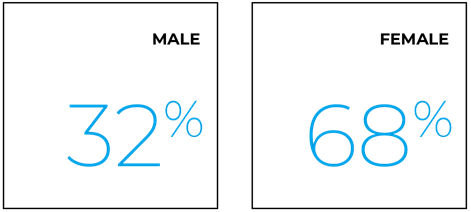
HIGHLIGHTS
International Recognition: Accredited by the The New England Commission of Higher Education (NECHE);
The quality and academic standing of its faculty, both resident and visiting, combined with flexibility and the very latest technology, now available to tourism professionals around Greece and internationally via synchronous, distance learning;
Academic rigor with practical know-how: Academic courses are combined with specialized workshops (some of which face-to-face between November-March) by leading industry experts, tailored to address realistic technological and management challenges in travel, destination, tour guide, event, conference, leisure and entertainment management;
Strategic Partnership with Costa Navarino: Specialized workshops by Costa Navarino professionals, tailored to address challenges in hospitality and destination management. Three-day visit at The Westin Resort Costa Navarino, located at the first resort area in Costa Navarino. Costa Navarino is the prime, sustainable destination in Messinia, southwest Peloponnese, encompassing luxury resort hotels, high-end residences, a new golf destination, spa, sports & leisure facilities, as well as authentic cultural experiences;
Internship: Opportunity to spend three months at the heart of the tourism season at a number of tourism organizations. Internship at Costa Navarino offers c.v. inclusion into a global employment database and access to the most exciting online and classroom training programs;
Ideal location: The program is offered in Greece, a country with a long-lasting tradition in tourism;
Links to the industry: Students will benefit from the close links between Alba and the Greek tourism community.
Member of
![]()
Winner of

FULL TIME
MSc in Tourism Program FT Total Year Schedule 2024 -2025
Important Notes:
- In the context of the Introduction to Tourism Management course, a mandatory 3-day visit is included to Costa Navarino Resort. The total cost of the visit is approximately 300 euros;
- Career Development: This is an option provided only to Greek and EU students International VISA holder students who cannot conduct an internship in Greece (due to Greek immigration law), may opt for an paid internship in the United States via HRC-International (extra fees are involved). Alternatively, they can access global internship opportunities through the international job portals provided by Alba’s Career Office.
You may find the Graduate Academic Calendar 2024–25 here.
1st Period | October – November
Managing People in Tourism and Hospitality
2
This course covers motivation, involvement, team work, leadership, emotional intelligence, cultural awareness and change management in Tourism Organizations. Each session integrates classical and modern concepts, building on key theories with a rich array of contemporary real-world examples and cases from the Tourism sector.
Business Writing and Presentation Skills
2
This introductory course outlines the main principles of writing and presenting academic and business assignments. A series of activities are used to develop, extend and enhance analytical and synthetical writing and presentation skills. The course explains the importance of knowing one’s audience, purpose and subject of written assignment or presentation. The sequence of stages and steps in the process of writing and presenting effectively is analysed. Preparing and delivering techniques are discussed.
Introduction to Tourism Management
2
This course analyses the nature, structure and scope of the tourism and hospitality industry, and discusses how broader business environment influences and trends affect the management of tourism and hospitality organisations in key sectors, such as accommodation, transportation, tour operating, visitor attractions, etc. Focusing on the particularities of tourism as a product and the distinctive characteristics of tourism demand and supply, the course introduces key considerations, challenges and current practices in decision-making in contemporary tourism and hospitality management. The course is complemented with a three-day visit to Costa Navarino, during which students have the opportunity to gain practical knowledge on several aspects of hospitality management.
2nd Period | November – December
Managing Service Operations
2
This course focuses on the unique aspects involved in the design and delivery of service operations. In Tourism and Hospitality the objective is to introduce students to the basic issues and main challenges that most successful service operations face today. Students completing this course will acquire the tools to identify and apply appropriate management processes to ensure efficient, effective and quality oriented service operations.
Marketing Management for Tourism
1
This course is designed to provide students with a good command of the key elements of marketing management across tourism organizations. During this course students will be encouraged to develop an analytical perspective and a critical understanding of the marketing concepts, models, and tools as they are applied across tourism organizations. Through case studies and contemporary examples from the tourism industry, the practical relevance of marketing theories for tourism managers will be highlighted and students will be expected to apply the theoretical concepts discussed onto real-life marketing examples from the tourism industry.
Business Decisions with Data and Models
2
This course aims to enhance business problem solving through the use of technological tools and data analytics. The discussion evolves around the importance of the customer journey and the significance of technology in designing a unique and customized customer experience. Participants will be exposed to real life case studies and experience hands-on workshops with leading executives of the Hospitality and IT market.
The classes conclude with Team-based presentations based on a given scenario aiming to create a real-life strategic plan based on the learning objectives set at the beginning of this course.
3rd Period | January – February
Digital Communication and Channel Management
2
Hospitality and tourism is one of the industries that is most affected by digital development. Moreover, the travel industry stands as one of the first successful adopters of digital marketing. But as tech’s effect on travellers behavior continues to evolve, travel companies need to adopt and reshape the way they operate.
This course focuses on providing a general overview of the vast digital marketing ecosystems by presenting its main channels. The course analyses three channels (Channel #1 Website / Landing page architecture, Channel #2 Social media strategy, Channel #3 Social media campaigns) in more detail, in order to place students in a position to gain rich insights through case studies and real life scenarios.
For every channel, a practical workshop will be carried out, during which students will be asked to implement a specific deliverable, integrating information, concepts and models, discussed in class.
The objective of the course is to introduce students to a way of thinking and working on digital marketing projects as the constant change and development of the current and future platforms, solutions, applications requires this approach and handling.
Finance and Cost Accounting
2
This course aims to provide the knowledge and skills required for the understanding and use of financial and accounting information for decision-making.
Some of the topics covered during the course include: the meaning and role of accounting, branches of accounting, and users of accounting information, the accounting cycle, and the financial statements, ways of analyzing, interpreting and evaluating financial statements, the meaning and role of management accounting, branches of management accounting, costing terms and purposes, cost-volume-profit analysis, cost allocation, the Net Present Value and the Internal Rate of Return) and financing decisions.
Throughout the course emphasis is given on related issues in the hotel and tourism industry, with the use of relevant examples and case studies.
4th Period | February – March
Revenue Management
2
This course is an introduction to the theory, principles and practices of revenue management (RM) and how these can be particularly applied to the growing tourism industry. More specifically the course focuses on the application and evaluation of revenue management strategies and is intended for individuals with a specific interest in the tourism industry.
Purchasing and Supply Management
2
The course covers supply chain coordination, supplier selection, purchasing methodologies and contracting, material forecasting and safety stock, and design of services for supply chain efficiency. It also focuses on the best practices that lead to efficient, effective, and customer-responsive SCM processes that transform ideas into high quality services, delivered at competitive prices while simultaneously providing superior financial returns within environmental, ethical, and legal constraints.
5th Period | April – May
Strategy in Tourism
4
The course provides an integrative framework for the whole program. It will explain basic planning principles of business strategy and the process through which strategic decisions are made in tourism organizations at both destination and organizational level. Students will become familiar with key strategy elements, such as how tourism organizations select the market, product, and areas in which they compete, how they position themselves in these areas, how they interact with their external environments, how they adjust to changes, and how they decide and implement structure and policies that enable them to achieve their overall goals. The role of the HR professionals in the process of corporate strategy formulation and implementation will also be outlined.
Sustainability in Tourism
1
This course builds on the Introduction to Tourism Management course and delves more deeply into the positive and negative economic, socio-cultural and environmental impacts that the tourism industry is responsible for. The course places particular emphasis on the inability to isolate the positive from the negative impacts of tourism, and therefore the necessity for identifying strategies for optimizing tourism’s impacts, i.e. maximizing the benefits while minimizing the costs. After defining key sustainability principles and potential challenges, as well as management tools and methods, the course will encourage students to reflect on the role, and responsibility, of various stakeholder groups in applying sustainability principles in practice in the tourism and hospitality industry. The concepts covered are illustrated with a detailed case study of the Ninki Nanka Trail in The Gambia.
Entrepreneurship in Tourism
2
The Entrepreneurship in Tourism course takes students through the process of creative thinking, idea generation and problem-solving, and all these for the purpose of creating a business plan for a new venture. The course begins by enhancing participants' creative skills and idea generation competencies and strengthens their ability to recognize dynamic and promising opportunities. During this course, the students will also have the opportunity to attend an Event Management workshop where they will learn concepts such as: Basic Characteristics of Events, Event Classifications, Pitching for Events, Useful Tools for Event Management. The will also be taught of case studies of different types of events. Last but not least, the students will be given the opportunity to set up their own event in order to “pitch” their entrepreneurial idea.
6th Period | May – August
Career Development Tourism
4
This course brings together the academic with the business world, providing a unique opportunity to students to advance their career and professional development in the tourism industry. It has the status of a course, hence it carries credits and it is graded. The benefits for students include the opportunity for: the blending of academic and on-the-job learning; the integration of academic knowledge with practical experience; the development of relevant skills and understanding of diverse operations; the identification and/or refinement of career goals; strengthening employability skills. Career development may take the form of an internship in a tourism organization for those students who are currently not working or the form of professional development for those students who work in a tourism organization.
Internship: The expected duration is three (3) months, between May and September. The benefits for students include the opportunity for the blending of academic and on-the-job learning; the use of the explicit knowledge gained during the program, the attainment of tacit knowledge, the development and diversification of skills, the acquisition of work experience, the identification and/or refinement of career goals, the creation and/or development of a professional network. The benefits for companies include the opportunity to meet some company needs with highly qualified and motivated students, the identification of talent for potential future employment, the enrichment of current perspectives and practices with the intern’s novel ideas, the enhancement of social responsibility activities.
Professional development: The opportunity is given to students to reflect on their work practices and experiences and apply the academic knowledge acquired through the program on a real tourism organization. A reflective report needs to be produced, which represents the culmination of the program’s intensive learning. Students are expected to test what they have learned in class in a real setting, identify areas for professional development, set career goals and generate a concrete action plan.
Dissertation (upon availability)
4
The Dissertation is a research project of a student’s special interest in a faculty member’s area of expertise. The students will have the opportunity to construct a detailed plan of a research and write a report covering a review of the relevant literature, the research questions, an explanation and justification of the design, a description of the conduct and analysis of the research, and a discussion of the findings in relation to the literature and methodological issues.
PART TIME
MSc in Tourism Program PT Total Year Schedule 2024 - 2026
Important Notes:
- In the context of the Introduction to Tourism Management course, a mandatory 3-day visit is included to Costa Navarino Resort. The total cost of the visit is approximately 300 euros;
- Career Development: This is an option provided only to Greek and EU students International VISA holder students who cannot conduct an internship in Greece (due to Greek immigration law), may opt for an paid internship in the United States via HRC-International (extra fees are involved). Alternatively, they can access global internship opportunities through the international job portals provided by Alba’s Career Office.
You may find the Graduate Academic Calendar 2024–25 here.
1st Period | October – November
Introduction to Tourism Management
2
Business Writing and Presentation Skills
2
2nd Period | November – December
Managing Service Operations
2
Marketing Management for Tourism
1
3rd Period | January – February
Finance and Cost Accounting
2
4th Period | February – March
Revenue Management
2
5th Period | April – May
Sustainability in Tourism
1
6th Period | October – November
Managing People in Tourism and Hospitality
2
7th Period | November – December
Business Decisions with Data and Models
2
8th Period | January – February
Digital Communication and Channel Management
2
9th Period | February – March
Purchasing and Supply Management
2
10th Period | April – May
Strategy in Tourism
4
Entrepreneurship in Tourism
2
11th Period | May – August
Career Development Tourism
4
Dissertation (upon availability)
4
FACULTY
Below you can see the Academic team of our program who deliver all courses. Please note that most courses also contain workshops, which are delivered by well experienced practitioners in the areas of hospitality management, service operations, digital communication and channel management, revenue management and event management.
Academic Director
Dr. Baralou has broad research interests in how technologies mediate human interactions. She studies serious games and how the gamification process can enhance organizational learning and innovation. Her research draws on activity theory and critical realism as a broader philosophy.
alba profile linkCAREER
Graduates of the program will be able to:
- Identify new trends and the requirements of employers, and adapt and respond effectively;
- Provide outstanding service along international standards and manage successfully the complexities of the tourism industry;
- Command the theory and practice in all aspects of running a tourism business: strategy, finance, marketing, operations, human resources;
- Contribute to the management and organization of: hospitality, travel, destination, event, conference, leisure, entertainment and real estate development;
- Handle the internal IT systems and online media channels necessary for digital marketing and operations.
SCHOLARSHIPS
You can secure pre-approval of your Scholarship, before you apply for admission to the MBA or MSc program of your choice.
GMAT Scholarships
Scholarships of 40% for MBAs and MSc programs for GMAT ≥ 645
Next Generation Family Business Scholarship
One (1) merit-based partial awarded to a member of the next generation of a family business for several MBA & MSc programs
The Chris Argyris Scholarship
Two (2) partial scholarships amounting to 50% of total tuition fees for various MSc Programs, based on a combination of academic performance & potential.
Ulysses Kyriakopoulos Expendable Scholarship
Partial scholarships, based on a combination of academic/professional excellence, high academic & professional potentials and presence of financial need.
Women on Top partial Scholarship
Women on Top offers one partial merit- based scholarship.
ADMISSION REQUIREMENTS
To be considered for admission, candidates must:
- Hold a bachelor’s degree;
- Provide evidence of excellent command of the English language;
- Need to be currently employed or self-employed (valid for the part- time mode only);
- GMAT tests are optional unless the Academic Committee requires the applicant to take them: in any case, scores of 515 or more (GRE >155) can strengthen your application and help you secure a scholarship.
Candidates must submit:
- The completed application form, including one recent photograph in jpeg format;
- Two letters of recommendation in Greek or in English language;
- Official Academic Transcripts as well as Certified copies of degrees from each undergraduate, graduate or professional degree earned;
- Proof of competence in the English language (unless schooled in English): Proficiency (Cambridge Proficiency, Michigan Proficiency, MSU Proficiency), or TOEFL, or IELTS, or Duolingo English Test;
- Three Essays, as indicated in the Application form;
- Receipt of the non-refundable application fee's [€60] deposit.
Click here to download the details for admission.
For details on academic policy, course credit policy, fee policy, and rules for student conduct, please refer to the Student Handbook .
Additionally, the School's Students Code of Conduct can be found here.
Important information for International Students: Student Visa seeking international students must complete their application process by June each year- the latest. Program starts in October each year. Please also note, since the program is online, student VISA is optional and international students can travel to Greece in order to participate in face to face workshops with a Tourist VISA. Students will require to apply for tourist VISA twice during the Academic year.REQUEST A BROCHURE
Fill in this form for a copy of the brochure
CONTACT

We urge applicants to request further information or to come for a meeting at our downtown campus, in order to better understand their profile and motivations.
Just fill out and submit the form below and we will respond to you as quickly as possible.
Tel.: +30 210 89.64.531 ext. 2289
e-mail: [email protected]


